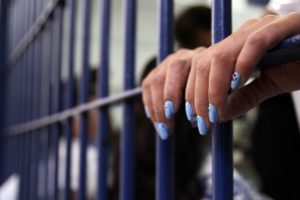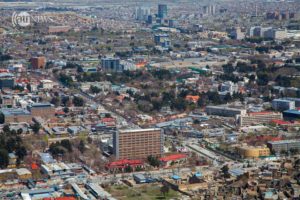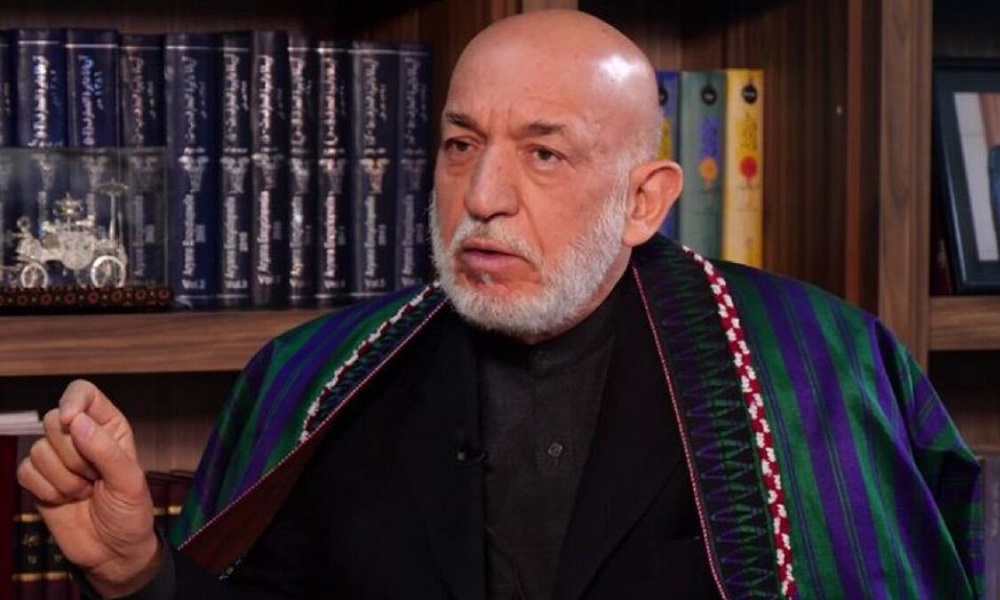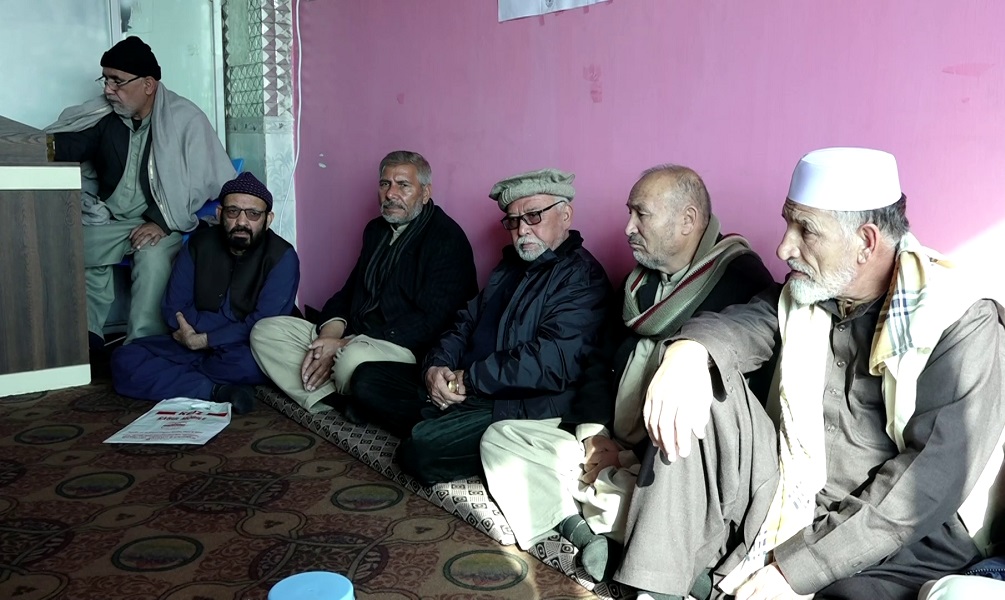Latest News
Amnesty International urges Afghan gov’t prioritize release of women prisoners

 The Amnesty International Friday urged the Afghan government to take immediate steps to implement President Ghani's decree to release prisoners to control the spread of COVID-19.
The Amnesty International Friday urged the Afghan government to take immediate steps to implement President Ghani's decree to release prisoners to control the spread of COVID-19.
The organization called on the authorities to prioritize women prisoners.
It said as the number of cases in Afghanistan rises, there are fears that prisoners in overcrowded detention facilities, often where up to five people are squeezed into a single cell in unsanitary conditions and without access to adequate health facilities, are at high risk of infection.
“Ten days have passed since Afghanistan’s President ordered the release of prisoners and nothing has happened. Every day, the risk to them rises. At particular risk are women prisoners, many of whom have children with them. There is ongoing discrimination against women and girls in general in Afghanistan," said Biraj Patnaik, South Asia Director at Amnesty International.
He noted that this discrimination beside many other challenges makes women least important, emphasizing, "The government must take immediate measures for the release of these women and for them to be safely relocated to limit the risk to them,"
Afghan civil society groups have raised concerns about the conditions of women prisoners. In an open letter to President Ashraf Ghani this week, the Afghan Women’s Network pointed out that many women prisoners at risk have not committed serious crimes or are yet to be convicted. Many of them are also mothers, with their children in custody with them. Like elsewhere in South Asia, Afghanistan’s prisons are overpopulated.
 Afghanistan faces particular challenges in dealing with the COVID-19 outbreak given the continuing conflict in the country, poor health infrastructure with just 300 ventilators, a shortage of doctors and other trained health workers, and a lack of testing facilities.
Afghanistan faces particular challenges in dealing with the COVID-19 outbreak given the continuing conflict in the country, poor health infrastructure with just 300 ventilators, a shortage of doctors and other trained health workers, and a lack of testing facilities.
With a lockdown imposed in parts of the country, including Kabul, daily wage earners, internally displaced people and other marginalized are also at high risk – faced with the cruel choice between infection and starvation, in a country where the government is dependent on international assistance for three-quarters of its national budget.
The western province of Herat is the epicenter of the COVID-19 crisis, followed by Kabul, the capital. Both Herat and Kabul are where the majority of women prisoners are located.
To date 521 cases have been reported across the country, affecting 27 out of 34 provinces, and resulting in at least 15 deaths.
Afghanistan does not have the resources it needs to deal with this crisis. This makes it more important that the government takes whatever steps it can to limit the spread of the virus, starting with groups who are most at risks such as prisoners including women and marginalized.
“It’s also crucial that the international community steps in to bolster the Afghan government’s efforts. Few countries have suffered as much as Afghanistan in recent years. The people of Afghanistan must not be abandoned at this crucial moment when they urgently need the world’s attention,” Biraj Patnaik said.
Latest News
G7 envoys urge national dialogue for lasting stability in Afghanistan

Special Representatives of the Group of Seven (G7), including the European Union, have emphasized the importance of a national dialogue for achieving long-term stability in Afghanistan.
Following a meeting on Afghanistan in Geneva, Switzerland, G7 special envoys issued a joint statement calling for the restoration of women's rights and urging the Islamic Emirate to fight terrorism.
The statement reads: "Achieving sustainable peace and stability requires credible governance that represents all segments of Afghan society."
The representatives also expressed concern over the IEA’s decision to ban girls from attending medical institutes, warning that it will have devastating consequences for the citizens, particularly mothers and their infants.
The statement described this ban as unacceptable and called on the Afghan authorities to lift it immediately.
Earlier, countries and international organizations had called for the removal of restrictions on the education and employment of women and girls, emphasizing the need for a national dialogue.
In response to these concerns, IEA has repeatedly stated that it will not allow interference in the internal affairs of the country.
The G7 special envoys also expressed their concern about the recent terrorist attacks in Kabul and the surrounding region, warning that terrorism remains a serious threat to Afghanistan's security. They confirmed the actions of the IEA against Daesh but stressed the need for more decisive measures.
Latest News
Afghanistan’s bright future lies in educating girls: Karzai

Hamid Karzai, the former president of Afghanistan, says the demand of Afghan girls for the reopening of schools and universities is their fundamental right and adds that Afghanistan cannot have a bright future without ensuring access to education for girls.
In a statement on his X (formerly Twitter) account, Karzai said: "The demand and voice of our country’s girls for education and knowledge is a rightful one and crucial for a prosperous Afghanistan."
He further emphasized, "Empowering the youth—both girls and boys—is the only way to achieve self-reliance, break the cycle of poverty, and drive the development and prosperity of society."
Karzai underscored that education is vital for Afghanistan’s growth and development, expressing hope that the doors of schools and universities for girls will be reopened as soon as possible.
Latest News
IEA to set up special courts to address pensions

Mawlawi Hebatullah Akhundzada, the supreme leader of the Islamic Emirate of Afghanistan (IEA), has issued a decree to establish special courts to address pensions, Bakhtar news agency reported on Saturday.
According to the decree, the courts must confirm and process pensions in accordance with Sharia and law.
Pensioners have repeatedly voiced concern over delay in payment, saying that their financial challenges are growing.
Earlier this year, IEA's supreme leader banned money being deducted from salaries of government employees for pensions.
He also requested information on the tenure of employees and the total amount deducted from salaries for pensions.
-

 Regional5 days ago
Regional5 days agoBomb kills chief of Russian nuclear protection forces in Moscow
-

 Sport5 days ago
Sport5 days agoATN once again seals deal to broadcast upcoming IPL across Afghanistan
-

 Sport5 days ago
Sport5 days agoLanka T10: All three matches abandoned due to rain
-

 World5 days ago
World5 days agoAt least 100,000 bodies in Syrian mass grave, US advocacy group head says
-

 Latest News5 days ago
Latest News5 days agoIndia hoping to import coal and marble from Afghanistan
-

 Latest News5 days ago
Latest News5 days agoTrump says he would have pulled out of Afghanistan with ‘dignity and strength’
-

 Sport4 days ago
Sport4 days agoZimbabwe’s opening ODI against Afghanistan abandoned
-

 Latest News5 days ago
Latest News5 days agoFuel prices rise in Herat as winter approaches















